 Petzlover
Petzlover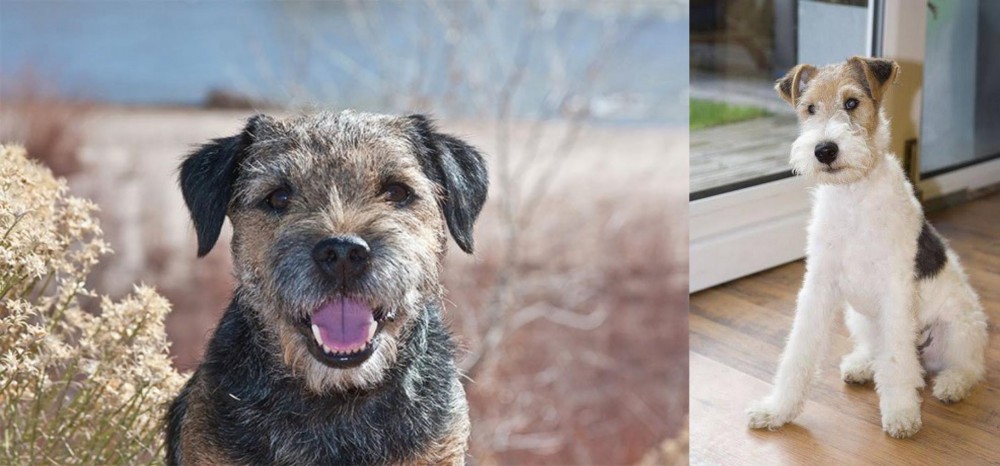 Both Border Terrier and Wire Fox Terrier are originated from United Kingdom. Both Border Terrier and Wire Fox Terrier are having almost same height. Both Border Terrier and Wire Fox Terrier are having almost same weight. Both Border Terrier and Wire Fox Terrier has almost same life span. Both Border Terrier and Wire Fox Terrier has almost same litter size. Both Border Terrier and Wire Fox Terrier requires Moderate Maintenance.
Both Border Terrier and Wire Fox Terrier are originated from United Kingdom. Both Border Terrier and Wire Fox Terrier are having almost same height. Both Border Terrier and Wire Fox Terrier are having almost same weight. Both Border Terrier and Wire Fox Terrier has almost same life span. Both Border Terrier and Wire Fox Terrier has almost same litter size. Both Border Terrier and Wire Fox Terrier requires Moderate Maintenance.
 As a working dog, the Border Terrier comes from the border country between England and Scotland. To be more specific, the dog originates from the rough hill country in the areas on both sides of the border between England and Scotland – an area known as 'The Border Country'. The breed was developed by the farmers, using the Terriers to help contain the fox population.
As a working dog, the Border Terrier comes from the border country between England and Scotland. To be more specific, the dog originates from the rough hill country in the areas on both sides of the border between England and Scotland – an area known as 'The Border Country'. The breed was developed by the farmers, using the Terriers to help contain the fox population.
It is believed that they are related to other kinds of terriers which also came from this region such as the Bedlington- and Dandie Dinmont Terriers. The first Border Terrier was registered in 1913 with the British Kennel Club. Later, the Border Terrier Club was also formed. A club for these dogs was also registered in the United States in 1930.
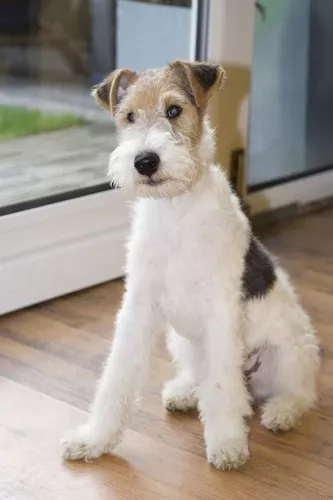 The wire fox terrier was developed in England by fox hunting enthusiasts. They wanted a feisty dog that could chase foxes down their burrows.
The wire fox terrier was developed in England by fox hunting enthusiasts. They wanted a feisty dog that could chase foxes down their burrows.
It is thought that the dog descended from the rough-coated black and tan working terriers of Wales.
The dog wasn’t popular as a pet until the 1930s when its appearance in certain films gave it a popularity-boost.
 The Border Terrier is a small to medium sized dog, weighing roughly between 5- and 7kg and standing at anything between 28 and 40cm in height. With his dark brown eyes and keen, alert expression, and with ears dropping forward, people describe the head as being like that of an otter. He is a courageous worker and a loyal companion but some people may not take kindly to him wanting to dig under-, or climb over barriers to get out to follow a scent or to go exploring.
The Border Terrier is a small to medium sized dog, weighing roughly between 5- and 7kg and standing at anything between 28 and 40cm in height. With his dark brown eyes and keen, alert expression, and with ears dropping forward, people describe the head as being like that of an otter. He is a courageous worker and a loyal companion but some people may not take kindly to him wanting to dig under-, or climb over barriers to get out to follow a scent or to go exploring.
The Border Terrier is a rough coated dogs of medium size with narrow build. The dog’s height is slightly greater than the dog’s length. The coat can be tan and black or dark grey. Sometimes the coat is described as grizzle - dark tipped hairs which give an overlay of color to the tan or red coat. You can also possibly find some white on the muzzle or chest. He has a double coat, with the outer coat being short, dense and wiry. The tail is of medium length and the ears drop forward toward their cheeks.
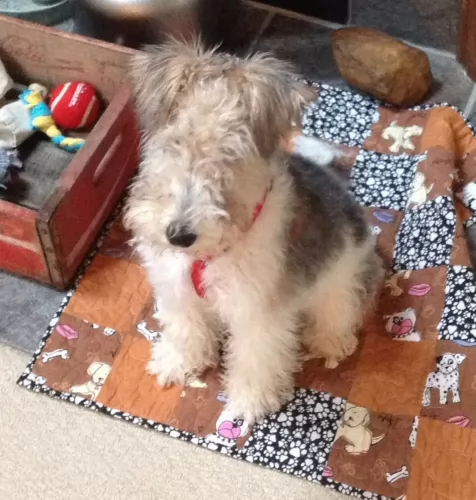 The Wire Fox Terrier is a sturdy, medium-sized dog that weighs between 7 and 9kg and stands between 35 and 39cm at the withers.
The Wire Fox Terrier is a sturdy, medium-sized dog that weighs between 7 and 9kg and stands between 35 and 39cm at the withers.
The dog’s double coat is essentially white with brown or tan markings and can be medium length and wiry, tending to be curly too.
He is a light shedder. The face is long, without much shape and eyes appear to be fairly close together. The ears are fairly small and they fold forward toward the cheeks. The tail is docked and is held high.
This really is an intelligent dog and can’t tolerate being bored. It’s essentially a companion dog too and doesn't want to be separated from his owners for too long.
As a companion dog he is going to want a lot of attention. They’re independent and strong-willed and will benefit from training and socialization.
They are great around children but they do need to be supervised as they are inclined to nip, especially when highly excited. They also bark quite a bit and the owner might have to do something to stop this yapping, especially when the dog is bored.
 A Border Terrier is a dog that has to be part of the family. You can’t just stick him in your back yard as he will just pine away with unhappiness. Boredom and loneliness will cause him to bark and he has a loud bark. He’ll become destructive – characteristics that aren’t his fault because he didn’t ask to be bought and just stuck away.
A Border Terrier is a dog that has to be part of the family. You can’t just stick him in your back yard as he will just pine away with unhappiness. Boredom and loneliness will cause him to bark and he has a loud bark. He’ll become destructive – characteristics that aren’t his fault because he didn’t ask to be bought and just stuck away.
Train and socialize your Border Terrier so that he becomes the great dog he is intended to be. He gets on well will children who have been taught to be kind to animals and he will get along with other pets in the home. The Border Terrier is an affectionate, sensitive dog and once trained he is willing to obey your commands.
The Border Terrier isn’t the greatest guard dog but is best known for his loving, devoted and loyal nature. He loves his food, and if you feed him well, provide him with a warm, dry place to sleep and provide him with lots of attention and exercise, you’ll have the most devoted and loving friend for life.
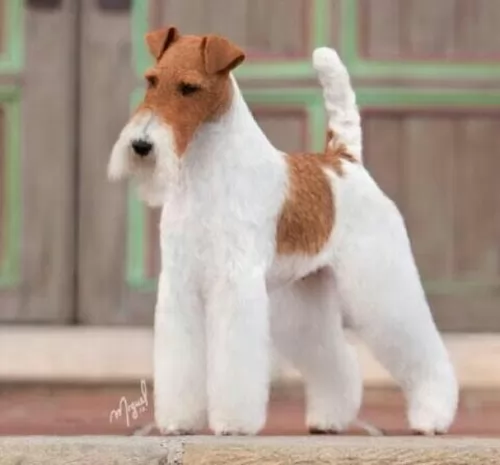 The Wire Fox Terrier is such a canine friend, ready to be with you no matter what you’re doing. They are social dogs and love being involved with their human companions.
The Wire Fox Terrier is such a canine friend, ready to be with you no matter what you’re doing. They are social dogs and love being involved with their human companions.
He is independent but still social and enthusiastic and you can describe him as the ideal family dog.
He is a bundle of energy, and when you bring him into your home, you’re going to get a family member who is playful, joyful, loving and loyal – your very best friend.
 Border Terriers are a healthy breed and with good food and plenty of love and attention, they can reach 14 years of age. It is to be noted with this dog breed that he doesn’t show signs of pain or sickness easily so you want to watch him closely.
Border Terriers are a healthy breed and with good food and plenty of love and attention, they can reach 14 years of age. It is to be noted with this dog breed that he doesn’t show signs of pain or sickness easily so you want to watch him closely.
Canine Epileptoid Cramping Syndrome - This is a disease which can be evident from 7 months of age already. The disease was once known as Spike's Disease, and its an hereditary disease of Border Terrier dogs. The cause of the disease is unknown but it is similar to canine epilepsy. It is thought that a contributing factor can be gluten, so a gluten-free diet will be recommended.
Heart defects can also affect Border Terriers, one of which is pulmonic stenosis. This is a narrowing of the valve which separates the right chamber of the heart from the lungs. It can ultimately lead to arrhythmia to congestive heart failure. He’ll have difficulty with breathing, suffer from abdominal distension and won’t be able to exercise properly.
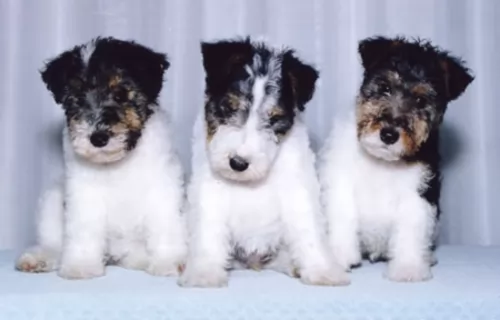 These are healthy dogs, and if you get your dog from a responsible breeder, he will have been checked for health conditions such as cataracts, hip dysplasia, and luxating patellas.
These are healthy dogs, and if you get your dog from a responsible breeder, he will have been checked for health conditions such as cataracts, hip dysplasia, and luxating patellas.
Cataracts are a problem with the lens of the eye. The lens focuses light and it should be crystal clear. A cataract obscures vision. Sometimes the cataract can be very small but other times it can grow to the size of the lens and then it can cause blindness.
Most times, dogs with cataracts can still see, and even though a dog may experience some confusion with a cataract, they don’t hurt the dog. They don’t go away on their own and will need to be removed surgically. If you see your dog has a cataract, consult your vet to get their opinion on the matter.
Your dog may be licking and scratching a lot and it may just be that your dog has a frustrating and irritating skin problem. This itching isn’t a disease but rather a cause of some disease.
There could be so many things that are causing your pet to scratch and it could be a skin disease, parasites or allergies. It can be terrible seeing the frustration it causes your pet and he will certainly need to see the vet.
 Because the topcoat of the Border Terrier is dense and harsh with a thick undercoat, he will require moderate grooming. He doesn’t shed too much. Brush your Border Terrier twice a week to remove dead hair and keep your dog’s coat healthy. As part of his grooming, keep his nails clipped as well as his teeth checked and brushed at least twice a week. Make use of specialized dog toothpaste and brush.
Because the topcoat of the Border Terrier is dense and harsh with a thick undercoat, he will require moderate grooming. He doesn’t shed too much. Brush your Border Terrier twice a week to remove dead hair and keep your dog’s coat healthy. As part of his grooming, keep his nails clipped as well as his teeth checked and brushed at least twice a week. Make use of specialized dog toothpaste and brush.
The Border Terrier can quickly put on weight so it is important to feed him according to the instructions on the packaging if you’re going to be feeding him with commercially manufactured dog food. Make sure its a quality brand and one which caters for his energy requirements.Dogs are individuals, and they don’t all eat the same amount. As a responsible dog owner, it is up to you to monitor your pet and understand his unique requirements.
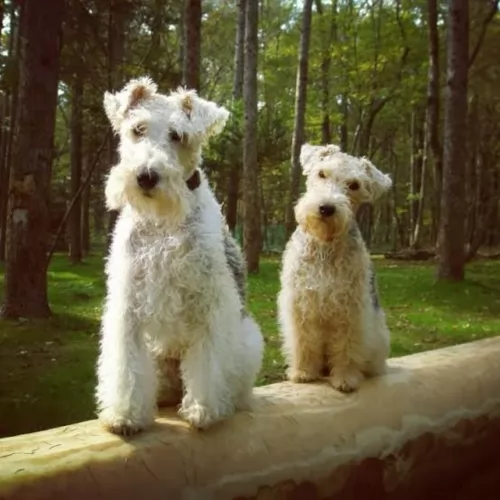 This dog will need to be brushed regularly. Some people hand-strip their dogs. Most people prefer just to take their pets to a professional groomer to have them professionally clipped. The groomers will simultaneously clip his nails, clean the inside of his ears and also clean his teeth.
This dog will need to be brushed regularly. Some people hand-strip their dogs. Most people prefer just to take their pets to a professional groomer to have them professionally clipped. The groomers will simultaneously clip his nails, clean the inside of his ears and also clean his teeth.
The Wire Fox Terrier will expect you to supply him with high-quality dog food if you opt to use commercially manufactured dog food. These foods can be wonderfully convenient but you want the food to be packed with natural ingredients and be high in vitamins and minerals.
Any diet should also be appropriate to the dog’s age, his size, and his activity levels. Some homemade foods can also be a treat but this needs to be simple with no heavy spicing. Things such as boiled chicken, brown rice and vegetables can be an excellent choice.